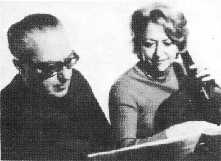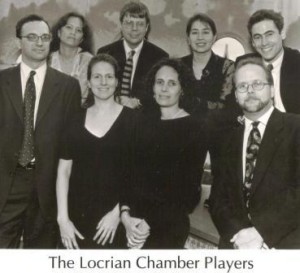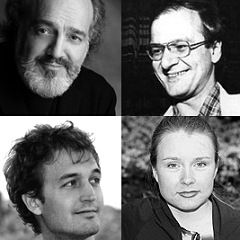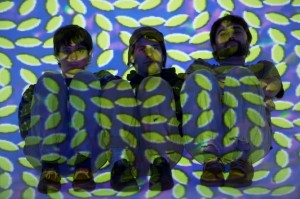The new season of the Phil was announced Thursday afternoon, accompanied by a press conference (with internet simulcast) by Dudamel and Deborah Borda, president of the board. This announcement was earlier than usual in order to fit into Gustavo’s schedule. I’m sure it’s just a coincidence that the Phil is using this opportunity to encourage people to submit their re-subscriptions early. Here’s the the index to the set of press releases. The Phil is welcoming Dudamel with a Bienvenido Gustavo” celebration — free — at the Hollywood Bowl and a performance of the Beethoven Ninth by the orchestra with the Master Chorale. Yes, free. Every ticket.
I think there are three major messages from this set of schedules. First, the Phil is not weakening its focus on contemporary classical music. There are very few Phil programs with music without at least a significant work from the twentieth century if not a contemporary work. There will be two significant festivals: West Coast: Left Coast in November; and Americas and Americans in April. There will be nine Philharmonic commissions this season: two works by Adams (one for solo piano to be performed by Ax), Newman, Lieberson (a new work for cello and piano, performed by Ma and Ax), Chin, Golijov, Bermel, Benzecry, and Hartke (a symphony with organ). Terry Riley will return on the WDCH organ. Thomas Ades will return. We will hear the American premiere of Louis Andriessen’s La Commedia, conducted by de Leeuw in his return to Disney. We will have an evening of Eotvos. We will have Dawn Upshaw
Second, John Adams will be joining the Philharmonic in the new position of Creative Chair, as well as filling Philharmonic commissions for two new works. Adams was a key factor in making the Minimalist Jukebox so successful and so satisfying, and his contributions to the two new festivals will be welcome. I’ll get the full set of tickets, if at all possible. I wouldn’t even wait to see the program details.
Third, we may indeed be seeing the start of a Dudamel infusion of music from the Americas, both Anglophone America as well as Latin America. Hearing both the Golijov Mass and the Estevez Cantata, in the same season, is noteworthy.
Esa-Pekka Salonen will not conduct next season, on his own decision. He has been exemplary in providing a smooth transition to the new music director. In the 2010/2011 season he will begin a multi-year series of conducting assignments.
 Aurora Natola-Ginastera, internationally renowned cello virtuoso and wife of the late composer, Alberto Ginastera (1916-1983), passed away on Sunday, January 25, in Geneva. She was 85 years old. (Alberto wrote his second Cello Concerto for her, at least. What would our repertoire look like if not for composers in love?! ) The funeral information follows. All best. ~ Sarah
Aurora Natola-Ginastera, internationally renowned cello virtuoso and wife of the late composer, Alberto Ginastera (1916-1983), passed away on Sunday, January 25, in Geneva. She was 85 years old. (Alberto wrote his second Cello Concerto for her, at least. What would our repertoire look like if not for composers in love?! ) The funeral information follows. All best. ~ Sarah
 George Perle
George Perle 
 Maybe it’s all that cold, dark and ice; stuck inside with nothing else to do for a lot of days must be conducive to composition. At least it feels that way with regard to Canada, since this huge but relatively sparsely-populated space has what seems a disproportionate number of composers that I just love.
Maybe it’s all that cold, dark and ice; stuck inside with nothing else to do for a lot of days must be conducive to composition. At least it feels that way with regard to Canada, since this huge but relatively sparsely-populated space has what seems a disproportionate number of composers that I just love.